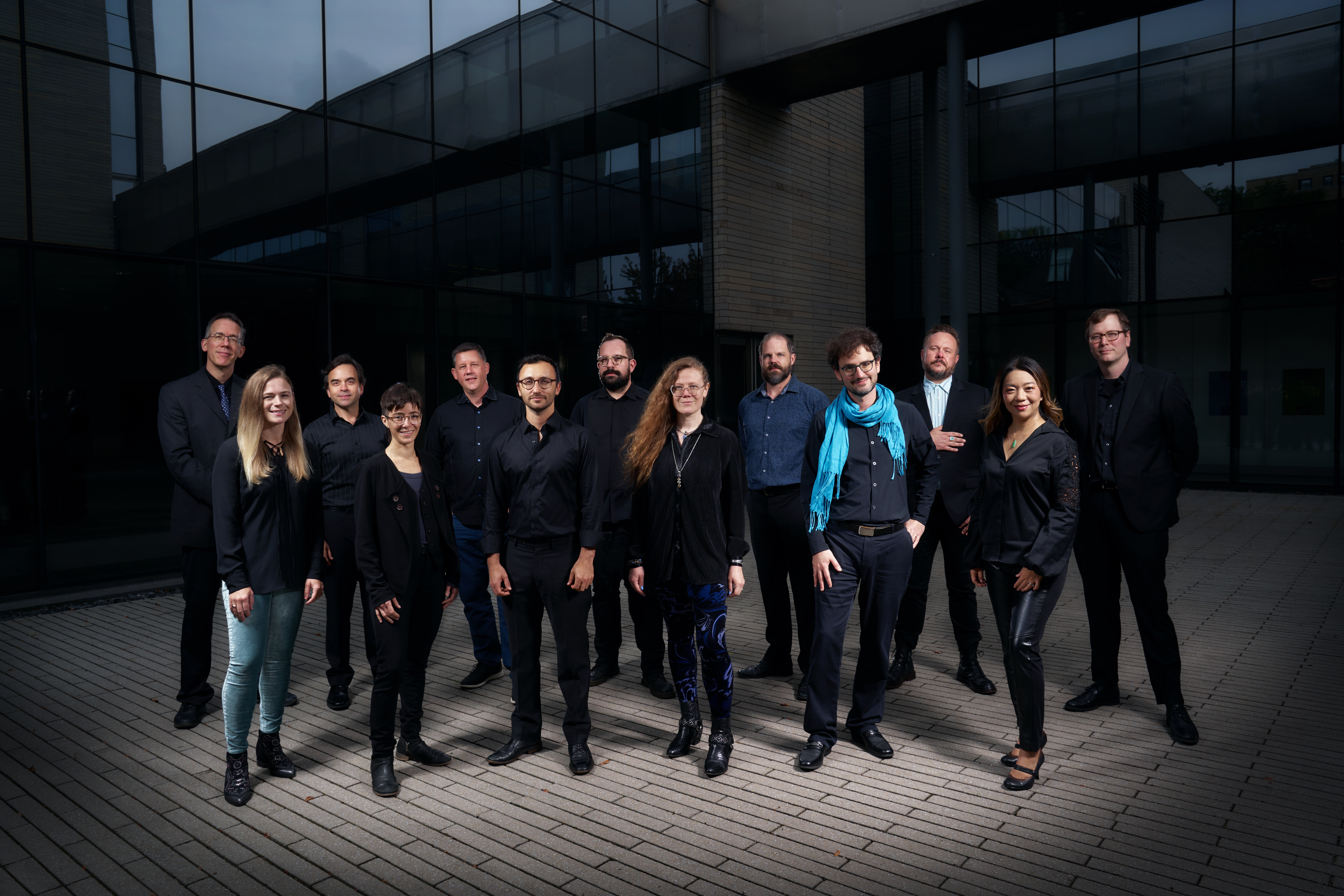
It’s not often that a concert leaves me breathless, but that’s what happened when the Grossman Ensemble opened the 2023-2024 season at the Logan Center for Performing Arts in Hyde Park on Saturday night. The resident ensemble of the Center for Contemporary Composition at the University of Chicago, the 13-person Grossman Ensemble typically offers world premieres of four new pieces that they commission. The compositions develop in a collaborative process between the composers and the ensemble.
Saturday’s concert offered a different formula, with only two of the four works being brand new. Also, during the performance, the ensemble’s line-up was altered with the addition of a vocalist, soprano Kristina Bachrach, double bassist Emmett Jackson, and mandolinist Jesse Langen. Also on the program was a multi-movement work, which, although it has happened before, is not typical.
For each performance, the Grossman Ensemble brings in a different conductor, with Brad Lubman taking the helm on Saturday. Hands waving, fingers pointing, he clearly enjoyed himself as he brought out their best. The ensemble delivered their usual tightness and precision, as all music requires. That they’re well rehearsed comes across in many ways, for example, with clear phrasing as the instruments trade sounds, and precise starts and endings of musical phrases that are sounded in unison.
The concert opened with a world premiere of A Glitch at the End of the World, by Ramon Lazkano, who was on hand to explain his short piece. It opened with a quiet whirl wind of sounds, with the winds playing long notes while the piano, percussion, harp, and strings add rhythm. The clarinet comes in with a tune, followed by the oboe and flute. Eventually, a rapid five-note rhythm came forth, with four quick beats and a long one.

Lubman next conducted the world premiere of his own …to Quiet the Mind…, which he described as an unusual work for him. A very troubled mind came through in the opening with quiet, dissonant long notes on the winds with backup rhythms on the vibraphone. Suspense built as notes were gradually added to the aural mix to create intense chords that dissipate in lasting overtones, which characterized the entire work. Toward the end, Lubman increased the speed. The ending was marvelous, with a slow buildup on the string quartet and low notes on the harp ascending its tonal range.
The breathtaking highlight of the evening was Arlene Sierra’s Ballistae, which featured a modified Grossman lineup that included Jackson on double bass. The work put to music the firing of a ballistae, which is a Roman artillery piece. It is essentially a large version of a mounted crossbow that hurled heavy rocks long distances.
Sierra called on the various instruments to imitate the sounds of firing this weapon. Rhythmically, it started as a trot and accelerated to a canter. By the end it was a gallop. When the rock hit its target, everything stopped in a gasp. The Grossman’s precise playing allowed the sound to build up, but Lubman’s conducting made it rock.
Following a brief pause to rearrange the stage, a reduced number of players returned for a longer piece to conclude the evening with Unsuk Chin’s Akrostichon-Wortspiel (Acrostic Wordplay). Instead of the saxophone, horn, cello, one violin, and one percussionist, Jackson returned on bass and Langen on mandolin. Given its title, the use of soprano Bachrach was totally on point.
Akrostichon-Wortspiel had its beginning in 1991 and its world premiere in 1993. The texts from its seven movements came from The Endless Story by Michael Ende and Alice Through the Looking Glass by Lewis Carrol.
The opening movement, a dirge “Hide and Seek” had the strings instruments playing harmonics and piano and percussion doing keyboard rills while Bachrach blended right in with long notes on the woodwinds. A couple sections sagged a bit, but things recovered when a spooky atmosphere with whispering took over. Later, things got frisky, as Bachrach sang through the alphabet. It ended like it started with long notes and overtone in a very unsettling intonation.
The Grossman Ensemble continues its season with a program of world premieres on Saturday, December 1, at Logan Center Performance Hall in Hyde Park. 7:30 pm. Reception following the performance. Click here for more information.
